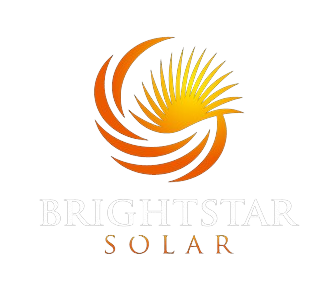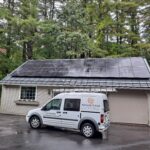The state of Massachusetts has one of the most generous solar incentive programs in the country. For that reason, they are personally vested that the solar installations they fund are viable. This is why the Massachusetts Clean Energy Center (MassCEC) mandates reaching 80% of optimal production to qualify for the residential solar rebate. However, commercial solar installations may receive a partial rebate for projects that meet or exceed 65% of optimal production but do not meet the 80% production requirement.
So what does 80% of optimal production mean? Optimal production occurs at a site that has a 180 degree azimuth (True South), 42 degree roof tilt, and zero shading. A Massachusetts solar installer would compare the production of your potential installation using your azimuth, tilt, and shading factors with that of an optimal site. If your home does not reach 80% of optimal production, then Massachusetts will not pay out a rebate. This analysis should be done upfront, and your contractor should give you this information prior to signing a contract and proceeding with the rebate application.
Another common question we get from customers is how Massachusetts enforces this requirement. There are a few ways that the state checks that the information given to them is correct:
1. They require a minimum of 7 photographs of the site location, including:
– 1 photo of the PV project location taken from the south looking northward toward the building or site
– 1 aerial image of the site from MSFT/Bing Virtual Earth, Google Earth, or a similar source
– 5 photos showing a 180 degree panoramic view, or 180 degree photographs with a superimposed sun path grid (e.g. Solar Path Finder, Solmetric SunEye, etc .)
2. A detailed spreadsheet of production estimate calculations is also required.
3. The state also asks for a site plan showing the location of critical PV components, array orientation, and all major foliage/structures/landmarks in the vicinity of the PV project that may impact performance.
4. The MassCEC has a right to conduct a post-installation inspection prior to approving a rebate payment.
If your site does not meet 80% of optimal production, you can decide to forgo the rebate and continue with a solar project, or reject the project altogether. It is in your best interest financially to have a site close to optimal production in order to get the highest return on your investment.
A rebate is only one of many incentives available for Massachusetts solar installations. If you’re thinking about solar for your Massachusetts home or business, rebates are not available for do-it-yourself projects and you will have to involve a solar professional to qualify. A Massachusetts solar installer, like Brightstar Solar, can help you determine if you have the right site for solar and talk about the broad range of incentives available for your installation. Contact us now for a complimentary evaluation and free estimate!








Pingback: Tweets that mention Massachusetts Solar Rebate Requires 80% Minimum Production Requirement — BRIGHTSTAR SOLAR -- Topsy.com